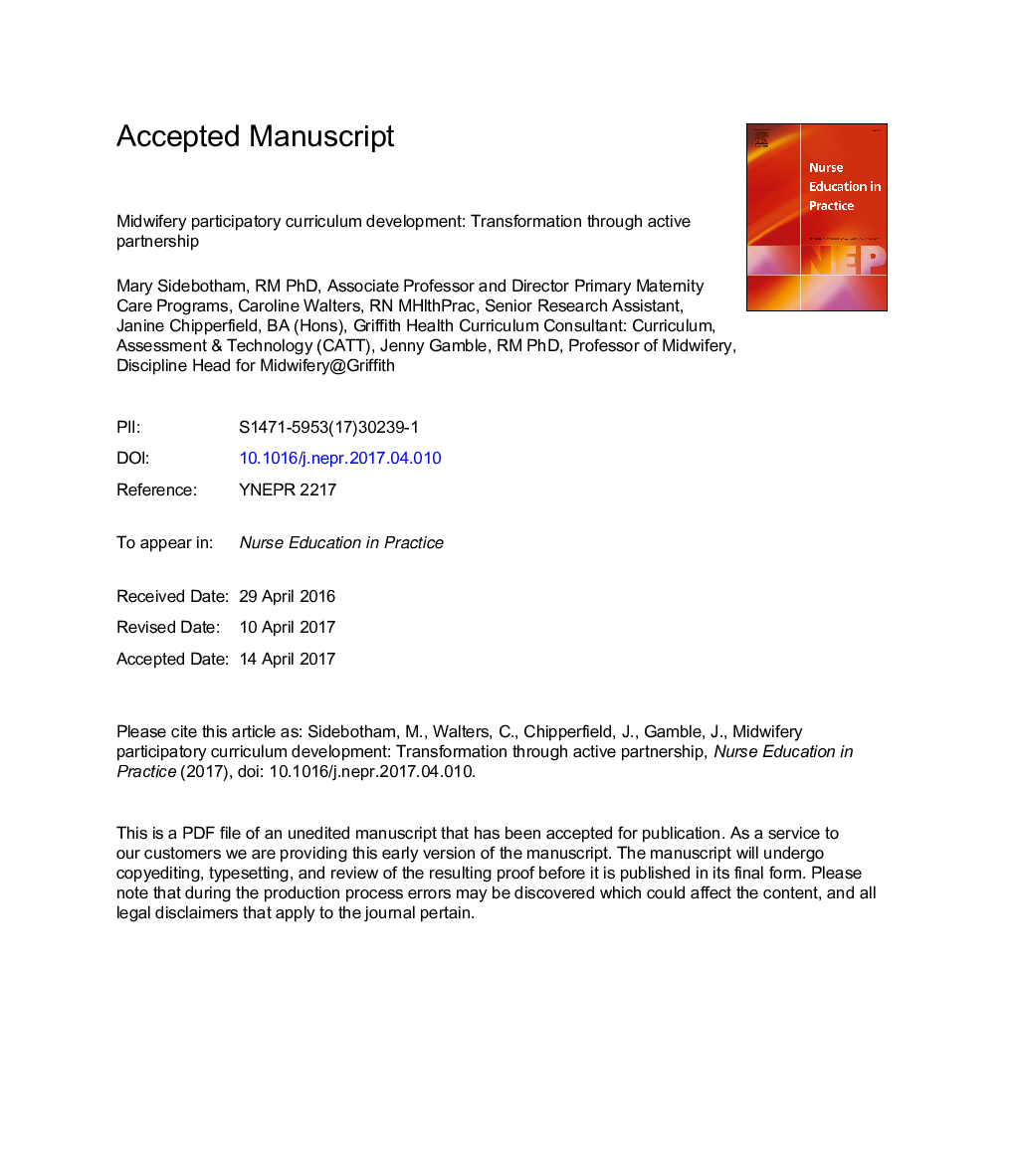| Article ID | Journal | Published Year | Pages | File Type |
|---|---|---|---|---|
| 4940407 | Nurse Education in Practice | 2017 | 34 Pages |
Abstract
Evolving knowledge and professional practice combined with advances in pedagogy and learning technology create challenges for accredited professional programs. Internationally a sparsity of literature exists around curriculum development for professional programs responsive to regulatory and societal drivers. This paper evaluates a participatory curriculum development framework, adapted from the community development sector, to determine its applicability to promote engagement and ownership during the development of a Bachelor of Midwifery curriculum at an Australian University. The structures, processes and resulting curriculum development framework are described. A representative sample of key curriculum development team members were interviewed in relation to their participation. Qualitative analysis of transcribed interviews occurred through inductive, essentialist thematic analysis. Two main themes emerged: (1) 'it is a transformative journey' and (2) focused 'partnership in action'. Results confirmed the participatory curriculum development process provides symbiotic benefits to participants leading to individual and organisational growth and the perception of a shared curriculum. A final operational model using a participatory curriculum development process to guide the development of accredited health programs emerged. The model provides an appropriate structure to create meaningful collaboration with multiple stakeholders to produce a curriculum that is contemporary, underpinned by evidence and reflective of 'real world' practice.
Keywords
Related Topics
Health Sciences
Nursing and Health Professions
Nursing
Authors
Mary (Associate Professor and Director Primary Maternity Care Programs), Caroline (Senior Research Assistant), Janine (Griffith Health Curriculum Consultant: Curriculum, Assessment & Technology (CATT)), Jenny (Professor of Midwifery,
